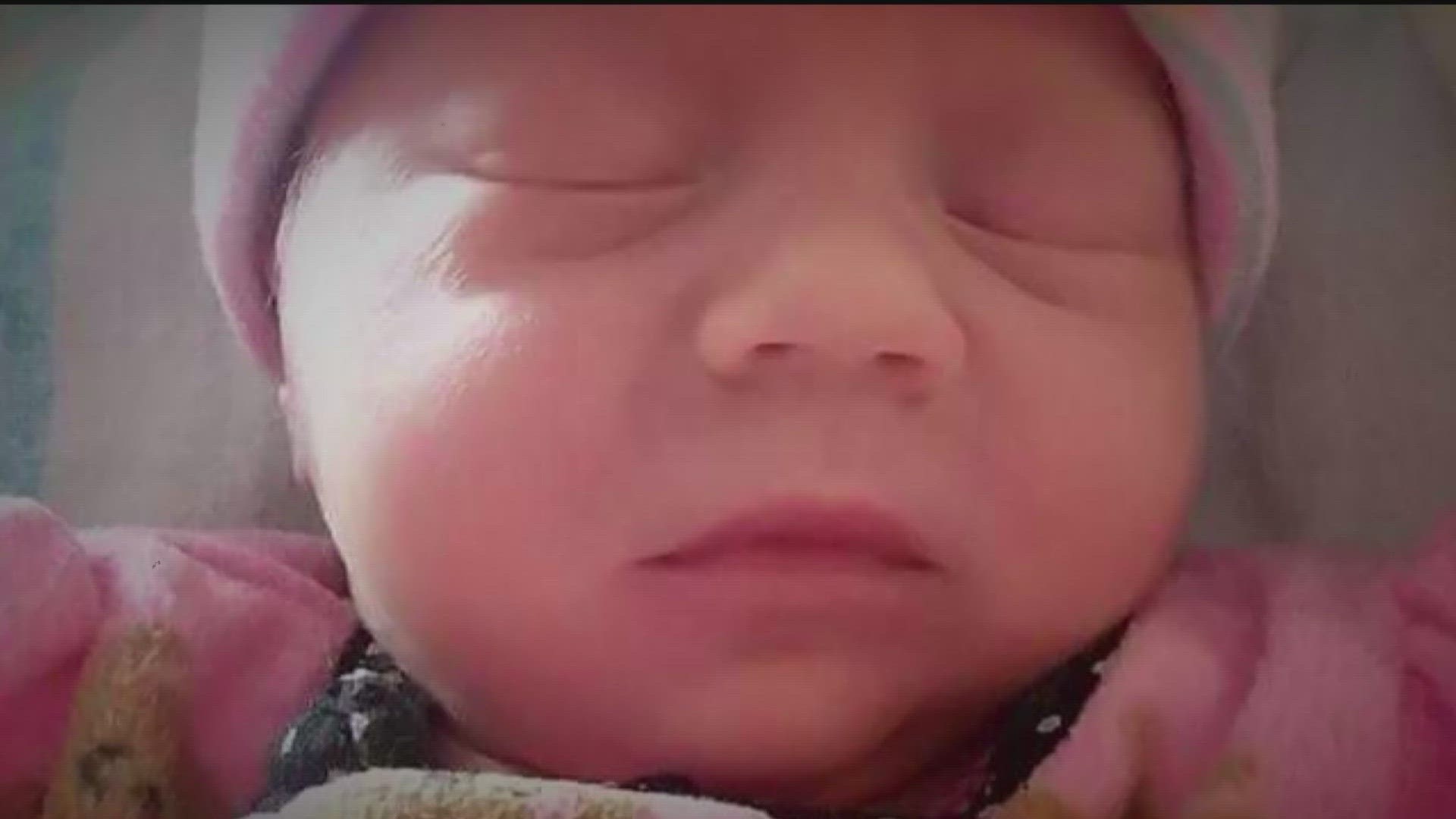ATLANTA — The 2019 conviction of a Georgia mother for the death of her two-week-old daughter, in which she and the infant's father were originally found guilty of murder, has now been fully overturned.
A state appeals court overturned the conviction of second degree murder and one other charge against Cortney Bell last year in the death of baby Caliyah. But at the time it left in place a conviction on a third charge, contributing to the dependency of a minor.
On Tuesday the Georgia Supreme Court also vacated that last part of Bell's conviction, determining there was not enough evidence to support the guilty verdict against her.
“Because we conclude based on the facts of this case that the evidence was insufficient to authorize a jury to conclude that Caliyah’s death was proximately caused by Bell’s conduct as alleged in the indictment, we reverse the judgement of the Court of Appeals,” Justice John J. Ellington wrote in a unanimous opinion for the Court.
The ruling will allow for Bell to be released from prison, where she'd continued to be held on the contributing to dependency conviction following the reversal of her murder conviction.
Chris McNabb, Caliyah's father, was also found guilty of murder at the 2019 trial. His conviction was upheld by the state Supreme Court last year.
Caliyah McNabb was found dead near the trailer Bell shared with Chris McNabb in 2017 one day after they woke up to find their daughter missing. McNabb was convicted on eight counts, including malice murder, and given life without parole plus 10 years after Judge John M. Ott - in a moment that has endured as a viral clip in corners of the internet - asked the father what sentence he would give the real guilty party, if McNabb were indeed innocent.
McNabb indicated the "maximum sentence" - and then Ott gave it to him.
The mom's lawyers successfully argued that prosecutors during the trial "presented zero evidence that directly tied Ms. Bell's conduct to the death of Caliyah" that would justify the deprivation conviction.
They asserted the prosecution used a stretched theory that she was a "bad mother for allowing McNabb, the children's father, to reside in the trailer with the children" and thus allowed the conditions - through him and his behavior - that contributed to Caliyah's death.
"A spouse or significant other bashing in your child’s head in the early morning hours is not “a reasonably probable consequence” of maintaining a dirty residence, allowing the father of a child to reside there, or partaking in methamphetamine," her attorneys had argued.
Caliyah was born prematurely on Sept. 23, 2017 and only weighed five pounds at birth.
On Saturday morning, Oct. 7, 2017, at 10:38 a.m., Cortney Bell frantically called Newton County 911 to report that her 2-week-old daughter had gone missing.
One day later, Oct. 8, searchers made a heartbreaking find -- the girl's body was located, wrapped in a blue cloth and placed underneath a log in a wooded area located about a quarter-mile away from the trailer park where McNabb and Bell lived, according to Newton County Sheriff's Capt. Keith Crum.
Three days later, McNabb was charged with malice murder, felony murder and more. Months later, on Jan. 1, 2018, Bell was arrested and charged in the case.
When she was sentenced after originally being found guilty, the mother acknowledged her use of meth was a "sickness," but held firm that, "I tried to be a good mama. I love my babies."
The Georgia Supreme Court ruling exonerated any reasonable expectation of responsibility for Bell in her daughter's death.
"The evidence here showed that Bell went to sleep one night, checked on Caliyah early the next morning, and went back to sleep for four and one-half hours. The evidence further showed that while Bell slept, McNabb committed a violent crime that the State conceded was the direct and immediate cause of Caliyah’s death,” Justice Ellington wrote. “There was no evidence that Caliyah’s death was a reasonably foreseeable consequence of Bell’s drug use or drug use in the home by McNabb or others or that it was reasonably foreseeable that McNabb would commit the horrific crimes that resulted in Caliyah’s death. And there was no evidence presented that showed Bell was a party to McNabb’s crimes, that she heard McNabb striking Caliyah and did nothing to stop him, or that she refused to provide Caliyah with potentially lifesaving medical treatment.”

